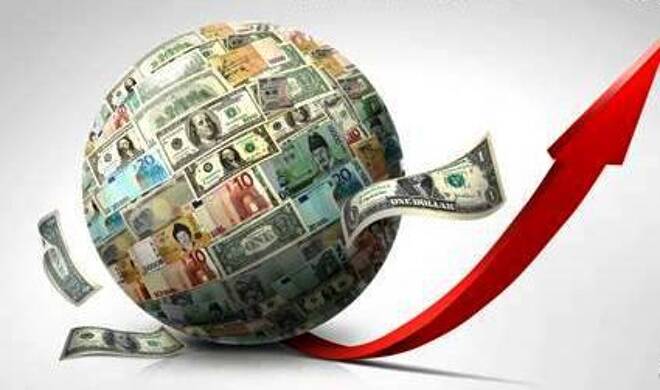Advertisement
Advertisement
Chinese Exports and Imports Better Than Expected Supporting the AUD & NZD
By:
Wall Street fell sharply on Friday, with benchmark indexes falling for a third week in a row, as computer-chip manufacturers led the losses after
Dollar index has shown some weakness in today’s trade against the Japanese Yen which has been appreciating as investors return to respect its haven status in times of uncertainty. The Japanese yen is trading at 107.18. The US dollar index is currently trading at 85.45. Most of the global currencies have appreciated with respect to the dollar. Euro and pound are trading at 1.2691 and 1.6116 respectively. Worries about the euro zone were echoed by European Central Bank President Mario Draghi, who said on Friday that a slowdown in the euro zone’s economic momentum could weigh further on the reluctance of companies and households to invest.
Market data will be very light today as investors review the Chinese trade balance numbers released early in the morning. China’s trade surplus more than doubled to $31.0 billion in September, official data showed as exports jumped while imports increased at a slower rate. Exports from the world’s second-biggest economy rose 15.3 per cent year-on-year to $213.7 billion, the General Administration of Customs announced, while imports climbed 7.0 per cent to $182.7 billion. The surplus was lower than August’s record $49.8 billion, and also came in below expectations of $42 billion in a poll of 15 economists by Dow Jones Newswires. But the rise in exports accelerated from August’s 9.4 per cent and was ahead of the median forecast of 12.5 per cent. The survey had predicted a fall of 2.4 per cent in imports, matching a surprise decline in August.
The biggest benefactors have been the Australian and New Zealand dollar. The Aussie swelled by 45 points to reach 0.8732 and the kiwi is up 47 points at 07870. Both economies are dependent on their exports to China. Investors are turning away from higher risk currencies such as the kiwi and Aussie on concern about the outlook for the global economy following weakness in Europe, Japan and China. The Reserve Bank of Australia maintained its 2.50% interest rate last week. RBA Governor Glenn Stevens commented that the central bank was concerned about the Aussie value, the prospect of the Chinese economy slowing down and softer commodity prices.
About the Author
Barry Normanauthor
Advertisement
